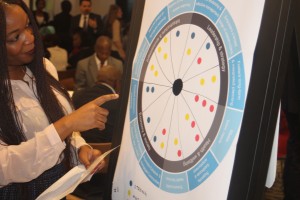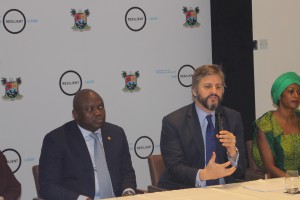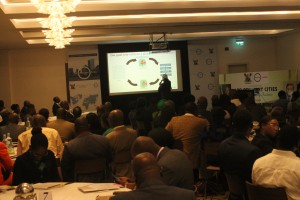

SPACES FOR CHANGE staff participated in the agenda-setting workshop which brought together a diverse group ofstakeholders including state officials, city and community leaders, service providers, businesses, and non-governmental organizations. Through a range of facilitated exercises and group discussions, workshop participants learned about the concept of Urban Resilience and began the process of identifying and discussing the city’s resilience-building priorities. During this session, SPACES FOR CHANGE discussed how the inequalities in the distribution of urban infrastructure as well as the exclusion of the city’s most vulnerable populations–such as slumdwellers–in urban decision-making produces the sort of stress that need to be addressed. An estimated population of over 21 million people live on Lagos’ 3,577 km² land mass (22% of which comprises lagoons and creeks) causing significant strain on the city’s infrastructure and social fabric. The state’s ability to respond to adverse events and shocks in both good times and bad is threatened, absent an inclusive resilience strategy that addresses these stark inequalities and strains.
100RC aims to help Lagos State become more resilient through the provision of four major resources, which includes a Chief Resilience Officer (CRO), who will lead the city’s resilience efforts. The CRO will lead efforts to develop a resilience-building strategy or roadmap, over the course of six to nine months. Lagos State also stands to benefit from the inclusion in the 100RC Network, through which CROs can share best practices, solve problems collectively, and learn from each other and from other resilience experts.





















